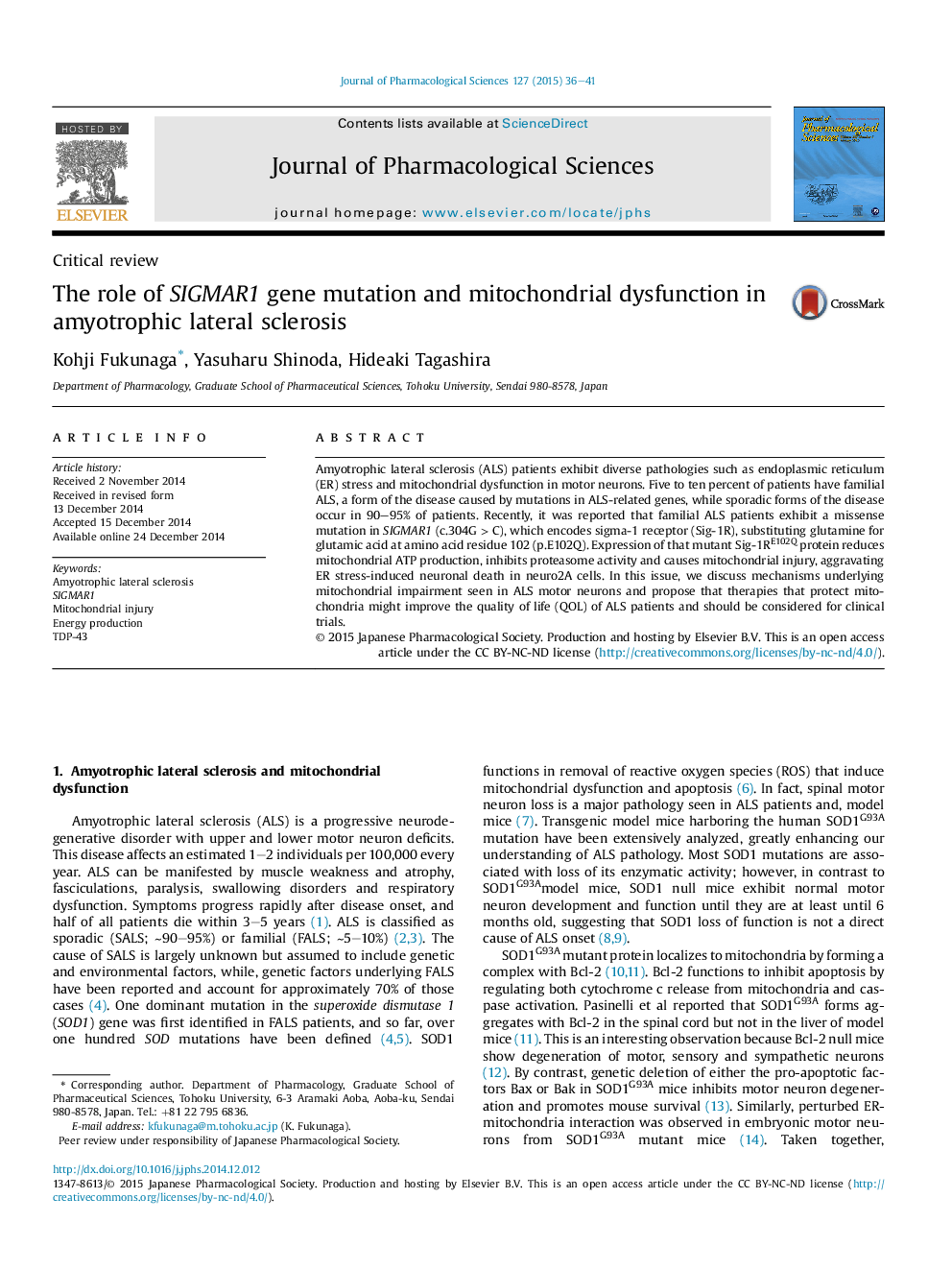| Article ID | Journal | Published Year | Pages | File Type |
|---|---|---|---|---|
| 2548816 | Journal of Pharmacological Sciences | 2015 | 6 Pages |
Amyotrophic lateral sclerosis (ALS) patients exhibit diverse pathologies such as endoplasmic reticulum (ER) stress and mitochondrial dysfunction in motor neurons. Five to ten percent of patients have familial ALS, a form of the disease caused by mutations in ALS-related genes, while sporadic forms of the disease occur in 90–95% of patients. Recently, it was reported that familial ALS patients exhibit a missense mutation in SIGMAR1 (c.304G > C), which encodes sigma-1 receptor (Sig-1R), substituting glutamine for glutamic acid at amino acid residue 102 (p.E102Q). Expression of that mutant Sig-1RE102Q protein reduces mitochondrial ATP production, inhibits proteasome activity and causes mitochondrial injury, aggravating ER stress-induced neuronal death in neuro2A cells. In this issue, we discuss mechanisms underlying mitochondrial impairment seen in ALS motor neurons and propose that therapies that protect mitochondria might improve the quality of life (QOL) of ALS patients and should be considered for clinical trials.
